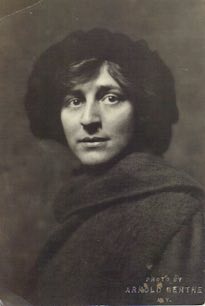Crystal Eastman, co-founder of the American Civil Liberties Union, struggled throughout her life for equal rights and civil liberties for all. Acquiring her law degree from New York University in 1907, Eastman was one of only a few hundred women lawyers in the early twentieth century. Her first job as an attorney was to investigate labor conditions for the Russell Sage Foundation. Her pioneering report, Work Accidents and the Law (1910), led New York Governor Charles Evans Hughes to appoint her the first woman on New York State’s Commission on Employers’ Liability and Causes of Industrial Accidents, Unemployment and Lack of Farm Labor. As a member of that commission, Eastman drafted the country’s first workers’ compensation law. That legislation became the model for workers’ compensation throughout the nation. Then, during Woodrow Wilson’s administration, Eastman became investigating attorney for the United States Commission on Industrial Relations.
Meanwhile, Eastman also struggled to further women’s rights – first suffrage and later equal rights – as co-author of the first Equal Rights Amendment. During the First World War, she was a leader of the peace movement, working with Carrie Chapman Catt to organize the Carnegie Hall meeting that led to the founding of the Woman’s Peace Party of New York -later renamed the Women’s International League of Peace and Freedom – the oldest women’s peace organization. Eastman became Executive Secretary of the Women’s Peace Party. A leading advocate for civil liberties and the rights of conscientious objectors during the First World War, she joined Norman Thomas and Roger Baldwin in founding the American Civil Liberties Union as the “watch dog” organization protecting Americans’ rights under the Bill of Rights and providing legal assistance to those whose rights may have been violated, regardless of partisan persuasion.
A brilliant orator and effective writer, Eastman campaigned throughout her life for peace, equal rights, and civil liberties. In a eulogy written for The Nation, Freda Kirchney remembered Eastman’s sincerity and enthusiasm. “When she spoke to people – whether it was to a small committee or a swarming crowd – hearts beat faster . . . . She was for thousands a symbol of what the free woman might be.”

